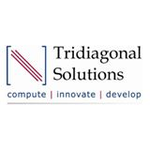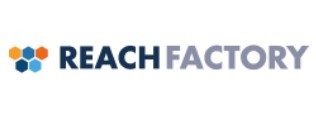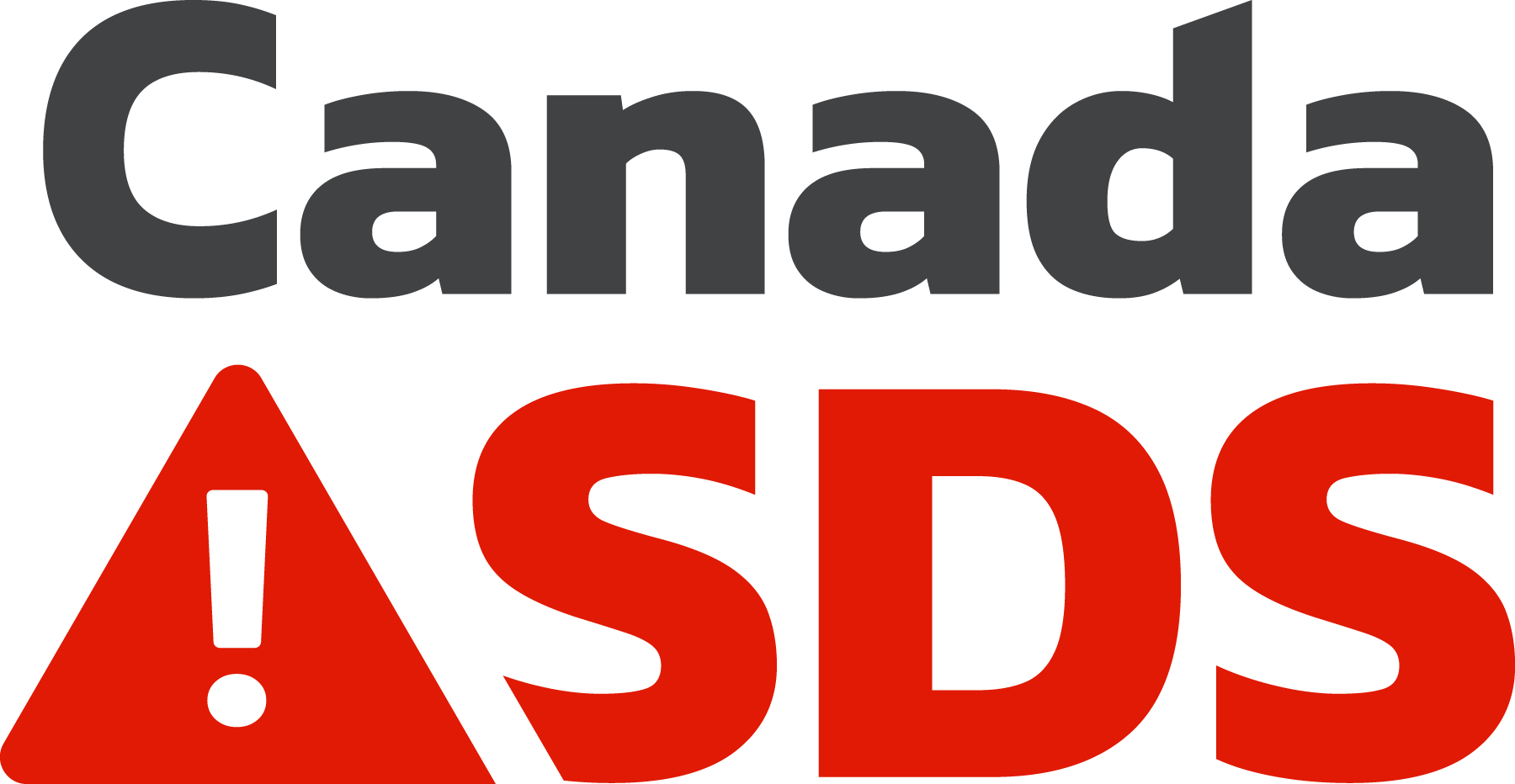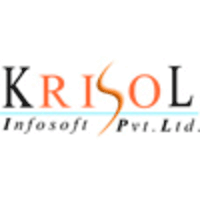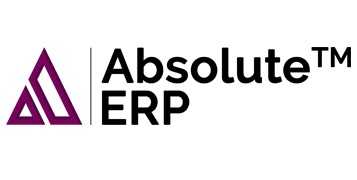Yes, chemical software can be accessed from several devices and systems. With technological improvements, many chemical software packages are now cloud-based, allowing users to access them from any internet-connected device. Furthermore, most chemical software is compatible with a variety of operating systems, including Windows, MacOS, and Linux. This enables users to seamlessly switch between devices and platforms without disrupting their workflow.
List of 20 Best Chemical Software
SDSMaster - a software that simplifies safety data sheet management. With its real-time updates and comprehensive compliance tracking, businesses can easily stay compliant while saving time and reducing administrative burdens. Streamline your SDS man...Read More SDSMaster
Ingenuity Pathway Analysis - a bioinformatics tool that aids researchers in understanding complex biological data. By integrating curated information and advanced analytics, it accelerates the discovery of new insights and propels breakthroughs in ge...Read More Ingenuity Pathway Analysis
Toxnot is solution for optimizing your supply chain management. Our intuitive platform offers automated features to streamline compliance, sustainability, and circularity, helping you meet your ESG goals and impress clients with personalized, timely...Read More Toxnot
Paratox is software that revolutionizes health, safety, and environmental management. Trusted by companies worldwide, it streamlines compliance processes and enhances workplace safety, leading to increased productivity. Upgrade your organizations saf...Read More Paratox
MixIT is a software designed to revolutionize mixing processes in industrial settings. Utilizing advanced simulation technologies, MixIT streamlines and improves mixing performance, providing actionable insights for process optimization and standardi...Read More MixIT
Yordas Hive - a software built to simplify the management of regulatory compliance for businesses. By combining cutting-edge data collection and instant legal updates, it enables effortless adherence to intricate regulations. The robust analytics of...Read More Yordas Hive
Chemcad - a process simulation software that transforms chemical engineering projects. This feature-packed tool offers intuitive features and reliable support to enhance design, analysis, and testing in a variety of industries. Accelerate productivit...Read More Chemcad
REACH Factory is a modular SaaS solution designed to revolutionize chemical management across all industries. Our comprehensive features, including SDS creation and management, ICPE/SEVESO status tracking, and real-time regulatory monitoring, provide...Read More REACH Factory
CanadaSDS, the top choice for SDS management in Canada. Our state-of-the-art software offers a complete database that is continuously updated for your peace of mind and compliance. Our user-friendly platform allows for effortless access and organizat...Read More SDS Management by CanadaSDS
Spectrum ERP for Chemical Industry - the perfect solution for chemical manufacturers. With its tailored features, this all-in-one software streamlines chemical processes, reduces expenses, and increases profitability. Optimize your operations, achiev...Read More Spectrum ERP for Chemical Industry
Vicinity Chemical Software is a all-in-one solution designed for Agencies and Enterprises in the chemical industry. Running on Windows, it streamlines all processes such as Quality Control, Recipe Management, Order Management, Product Lifecycle Manag...Read More Vicinity
Krisol ERP solution for the chemical industry. This cutting-edge software streamlines your business processes, increases efficiency, and provides accurate reporting tools for informed decision-making. Its automation features simplify operations while...Read More Krisol ERP for Chemical industry
ChemInventory is a cloud-based solution for streamlined chemical inventory management in laboratories. Simplify stock tracking and order requests with container barcoding, structure searching, and GHS safety information. This secure software is acces...Read More ChemInventory
Chemkin is software designed to enhance chemical kinetics simulations with unparalleled accuracy and efficiency. Its advanced features streamline research and development processes, allowing scientists and engineers to obtain faster and more reliable...Read More Chemkin
TorchLite is a software specifically created to streamline business workflows and boost productivity. By incorporating automated task management and data-driven analysis, TorchLite enables teams to effectively prioritize strategic goals and maximize...Read More TorchLite
Vertere is a laboratory inventory management software that revolutionizes tracking and compliance of chemicals, biological materials, and equipment. Its advanced features include real-time access, barcode integration, and regulatory reporting, making...Read More Vertere
Chempax, the top ERP solution for process manufacturing, is the perfect tool to boost operational efficiency. By integrating seamlessly with Datacor CRM, this software provides access to real-time data and automated processes, enabling businesses to...Read More Chempax
Absolute ERP solution for enhancing manufacturing processes in various industries. This software empowers businesses of all sizes with automation capabilities and is accessible on various platforms such as SaaS, licensed, on-premises, and cloud-based...Read More Absolute ERP
PROMAINT EAM & CMMS solution for Enterprise Asset Management. This software provides a wide range of features to easily manage and monitor all your assets, schedule maintenance tasks, and receive real-time updates on their status. PROMAINT ensures th...Read More PROMAINT EAM & CMMS
Infor ERP Chemicals is an innovative software that simplifies operations for chemical manufacturers, while ensuring compliance with industry regulations. With its specialized tools, businesses can quickly adapt to market shifts and boost profitabilit...Read More Infor ERP Chemicals
Learn More About Chemical Software
- What Is Chemical Software?
- What Are The Recent Trends In Chemical Software?
- Benefits Of Using Chemical Software
- Important Factors To Consider While Purchasing Chemical Software?
- What Are The Key Features to Look For In Chemical Software?
- Why Do Businesses Need Chemical Software?
- How Much Time Is Required To Implement Chemical Software?
- What Is The Level Of Customization Available In Chemical Software?
- Which Industries Can Benefit The Most From Chemical Software?
- Conclusion
What Is Chemical Software?
Chemical software are specialist programs and tools used to organize and analyze chemical data. This software is designed primarily for chemists, researchers, and chemical industry experts to help them with tasks like data organizing, laboratory testing, and chemical structure visualization. One of the primary purposes of chemical software is to streamline and automate laboratory procedures.
These programs, which include sample tracking, data recording, and data analysis, help to improve the efficiency and accuracy of research and experiments. Furthermore, chemical software enables the design of configurable templates and protocols, making it easier to reproduce experiments and ensure consistent findings. Another essential feature of chemical software is its ability to manage and organize enormous amounts of chemical data.
Chemical software's extensive search and filtering capabilities allow users to swiftly locate and obtain specified information, such as spectrum data, molecular characteristics, and safety information. This saves time while also ensuring the accuracy and dependability of data utilized in research and decision-making. Furthermore, many chemical software provides comprehensive data analysis and visualization options.
These qualities enable the analysis and interpretation of complicated datasets, making it easier to detect patterns and draw conclusions. Chemical software also has graphing and modeling features, which enable the production of visual representations of chemical structures and reactions. When choosing chemical software, check for features like compatibility with various operating systems and interfaces, data security measures, and a user-friendly design. To select the best appropriate program, you must also evaluate your organization's specific objectives and goals.
What Are The Recent Trends In Chemical Software?
Chemical software has evolved fast in recent years, providing cutting-edge solutions to a wide range of needs for chemical industry experts and businesses. From data management to process optimization, the most recent advancements in chemical software have centered on increasing efficiency, accuracy, and productivity in many facets of chemical operations.
One notable trend that has evolved is the increased use of cloud-based solutions. Chemical software now provides increased mobility and accessibility by harnessing the power of cloud computing, allowing users to view and analyze data from any location and at any time. This has greatly increased collaboration and streamlined procedures in chemical R&D, manufacturing, and supply chain management.
Another significant trend is the incorporation of AI and machine learning (ML) technologies into chemistry software. These advanced features allow the program to learn and adapt, delivering useful insights and forecasting outcomes through data analysis. This has considerably enhanced decision-making while also reducing errors and optimizing processes in chemical operations.
Furthermore, there has been a significant emphasis on data analytics and visualization in chemical software. With the volume of data created in the chemical industry, software solutions capable of properly analyzing and presenting this data in a visual style have grown in popularity. This has enabled more efficient data-driven decision-making while also assisting in spotting trends and patterns that might help enhance overall performance.
Another significant development is an increased emphasis on safety and compliance in chemical software. With strict rules and safety concerns in the chemical sector, software solutions that prioritize these elements have grown in popularity. This includes capabilities like real-time monitoring, hazard analysis, and compliance reporting, which help to guarantee that chemicals are handled safely and legally.
In addition, user-friendly interfaces and intuitive design have become more prevalent in chemical software. This has made it easier for non-technical people to use and navigate the program, resulting in greater acceptance and increased efficiency in day-to-day operations. Overall, current advances in chemical software show a strong emphasis on process optimization, data analysis enhancement, and industry safety and compliance improvements. Companies may remain competitive and achieve their goals in the fast-paced and ever-changing chemical sector by staying up to date on these developments and choosing the correct software.
Benefits Of Using Chemical Software
Chemical software is a strong tool developed exclusively for chemical industry specialists. It is filled with features and functionalities tailored to the specific demands of chemists, researchers, and scientists.We will go over the advantages of using chemical software so you can make an informed decision when purchasing for your company.
1. Improved Efficiency And Productivity: One of the primary advantages of employing chemical software is that it can dramatically improve your workplace efficiency and production. The software automates several time-consuming processes, such as data entry and calculations, allowing you to concentrate on more important areas of your job. This can lead to faster research and development, and thus better results.
2. Accurate And Reliable Results: Chemical software employs powerful algorithms and databases, allowing it to produce accurate and dependable findings. This is especially important in the chemical sector, where even minor calculations or errors can have serious implications. With chemistry software, you can be certain that your results are accurate and reliable.
3. Simplified Data Management: Working with chemical data can be difficult, but chemical software simplifies the process by offering a single database for all of your research and experiments. This improves data organization and administration, making it easier to retrieve and evaluate information as needed. This capability is especially useful for larger organizations with many users and projects.
4. Efficient Collaboration And Communication: Chemical software has capabilities that let teams collaborate and communicate. This enables improved cooperation among team members, even while they are working remotely. Real-time sharing, commenting, and version control enable everyone to stay on the same page and collaborate smoothly.
5. Adhere To Industry Standards And Regulations: The chemical sector is subject to stringent regulatory standards, and noncompliance can have serious implications. Chemical software is intended to comply with industry norms and regulations, guaranteeing that your job satisfies the essential requirements. This lowers the likelihood of errors and ensures that your organization remains compliant.
6. Cost-Effective: Investing in chemical software can save your company money in the long term. The program eliminates the need for human labor while lowering the risk of errors and rework. This leads to enhanced efficiency and productivity, which can eventually result in cost savings for your firm.
Important Factors To Consider While Purchasing Chemical Software?
When it comes to purchasing chemical software for your business, there are several important factors that should be taken into consideration to ensure you make the right decision. Chemical software is a critical investment for any organization, as it can help streamline processes, increase efficiency, and improve overall performance. To help guide your decision, here are few key factors to keep in mind while purchasing chemical software.
1. Industry-Specific Features: Different industries have different needs when it comes to chemical software. It is important to determine the specific features and functionalities that your business requires. For example, a chemical manufacturing company may need inventory management and batch tracking capabilities, while a research lab may require analytical tools and data visualization. Make sure the software you choose aligns with your industry and meets your specific requirements.
2. User-Friendly Interface: A good chemical software should have a user-friendly interface that is easy to navigate, regardless of technical expertise. A cluttered and complex interface can lead to confusion and inefficiency, resulting in a waste of time and resources. It is always a good idea to take a product demo or use a trial version to gauge the user-friendliness of the software before making a purchase.
3. Compatibility And Integration: The chemical software you choose should be compatible with your existing systems and should seamlessly integrate with other applications used in your organization. This will help avoid any data discrepancies and ensure a smooth workflow. It is also important to check if the software is scalable, so it can accommodate your future business needs.
4. Data Security: Chemical software often deals with complex and sensitive data, which makes data security a top priority. Before purchasing, inquire about the software's security measures and protocols for storing and handling data. Look for software that offers features like data encryption, user access control, and regular backups to ensure the safety and protection of your data.
5. Support And Training: Technical support and training are crucial for the successful implementation and optimal use of chemical software. Look for a company that offers comprehensive support and training to ensure that your team is equipped to use the software effectively. This will help minimize downtime and maximize the software's potential.
What Are The Key Features to Look For In Chemical Software?
When it comes to acquiring chemical software, customers should check for a few important elements to ensure they are getting the most effective and efficient solution for their unique requirements. These elements should meet the special demands and challenges of working with and storing chemical data, as well as provide user-friendly and customized tools for analysis, reporting, and collaboration.
1. Robust Chemical Database: A broad and trustworthy chemical database is the core of every good chemical software application. This should comprise an extensive collection of chemicals, spectra, characteristics, and reactions. It should also be updated on a regular basis to ensure that the information is current and accurate.
2. Industry Standard Compatibility: Chemical software should adhere to industry standards such as Chemical Markup Language (CML) and AnIML. This allows data to be readily moved and shared with other software and systems, reducing compatibility difficulties and speeding workflows.
3. Data Visualization And Analysis Tools: Look for software that has advanced data visualization and analysis capabilities. These elements should enable the manipulation and visualization of chemical structures and data, as well as enhanced analytical skills to detect trends and patterns.
4. Customization Options: Chemical software should offer varying levels of customization to meet the unique requirements of different users and organizations. This can include customisable dashboards, reports, and processes, as well as the ability to add and organize data based on predefined parameters.
5. Security And Compliance: Chemical software must include built-in security features to secure sensitive data and comply with laws such as REACH and GHS. User access controls, data encryption, and audit trail monitoring are all elements that can help assure data integrity and compliance.
6. Data Sharing And cooperation: In today's globally connected world, data sharing and cooperation are critical for efficient and productive chemical research and development. Look for software that facilitates and secures data exchange with colleagues both inside and outside of a company.
7. User-Friendly Interface: The best chemistry software should have an intuitive interface that is simple to explore and understand. This means that even non-technical users can quickly access and use the software's functions, which reduces the need for substantial training and support.
Why Do Businesses Need Chemical Software?
Chemical software has become crucial for firms in the chemical sector due to its multiple benefits and functionality. Let's take a closer look at the main reasons why firms use chemical software.
1. Increased Efficiency And Productivity: One of the most important reasons for investing in chemical software is to increase efficiency and production. Chemical software uses advanced features and capabilities to optimize manual processes and automate jobs, freeing up valuable time for staff to focus on more important responsibilities. This leads to faster and more accurate data analysis, decision-making, and overall smoother operations.
2. Enhanced Regulatory: Compliance The chemical sector is heavily regulated, and enterprises must comply with a variety of rules and regulations. Chemical software assists businesses in remaining compliant by providing functions such as hazardous material tracking and management, safety report generation, and correct labeling and documentation. This not only helps to prevent costly compliance penalties, but also preserves the company's reputation.
3. Real-Time: Monitoring and Reporting Chemical software allows firms to monitor and track processes in real time, providing useful insights and data for making informed decisions. This capability is especially important for businesses operating in hazardous areas, where prompt responses and preventative steps are critical to safety and risk management.
4. Inventory & Cost Control: Chemical software provides extensive insights on inventory levels, usage, and supply chain management, allowing businesses to keep track of their inventories and avoid the danger of overstocking or understocking. Businesses that understand inventory may better control expenses, decrease waste, and boost profit margins.
5. Integrated Data Management: Chemical software reduces the need for distinct and disconnected data management systems. Businesses may obtain real-time and accurate data from a single, centralized location, allowing for better forecasting and decision-making. Additionally, integrated data assists other departments such as accounting, sales, and customer service, resulting in better overall business operations.
How Much Time Is Required To Implement Chemical Software?
The time required to develop chemical software varies according on a number of criteria, including the program's complexity, the size of the business, and the level of customization necessary. On average, it might take between 2 and 6 months to fully develop and integrate chemical software into a company's operations. Installation and setup are often the first steps in implementing chemical software.
This comprises installing the software on all relevant devices and configuring it to fit the organization's specific requirements. This process is normally done within a few weeks. Next, training and onboarding are critical to the software's effective adoption. The amount of time required for training will vary depending on the organization's size and expertise with similar software.
Employee training on how to utilize the software might often take 2-4 weeks. Integration with current systems and data is another critical part of building chemical software. This could include importing data from prior systems or manually entering information. The time required for this stage will be determined by the amount and complexity of the data to be sent.
The final step is to test and troubleshoot for any faults or difficulties that may develop. This can take anywhere from two to four weeks, depending on the software's complexity and the level of customization required. Overall, a full and successful implementation of chemical software can take between 2 and 6 months.
However, with good planning and help from the software vendor, the shift can be smooth and fluid, resulting in greater organizational efficiency and productivity. Buyers should evaluate the time and resources required for implementation when deciding which chemical software solution is ideal for their firm.
What Is The Level Of Customization Available In Chemical Software?
Chemical software provides a variety of customizable features that may be tailored to the individual requirements of various industries and businesses in the chemical sector. These software solutions let customers to modify a variety of components of their program, including data analysis and reporting, process management, and workflows. One of the most important adjustable aspects in chemistry software is the ability to construct and adapt data models.
This includes the ability to alter data fields, algorithms, and calculations to meet the specific requirements of a business or industry. This level of personalization enables more accurate and efficient data analysis, resulting in better decision-making and process optimization. In addition to data models, chemical software provides customizable possibilities for reporting and visualization.
Users can design bespoke reports and dashboards that display data in the most appropriate format for their business needs. This results in a more intuitive and understandable data display, making it easier to recognize trends and potential difficulties. Customization in chemical software also includes the capacity to adapt processes and operations.
This involves automating specific tasks, developing workflows to optimize processes, and enabling notifications and alerts for crucial events. Businesses that customize these elements can improve efficiency and accuracy while lowering the chance of errors or delays. Furthermore, chemical software supports integration with other systems and software, giving users a more comprehensive and customizable solution.
This integration feature enables easy data transmission and communication across several platforms, resulting in a more efficient and integrated ecosystem. Overall, the level of customisation possible in chemical software is substantial, allowing organizations to build their software solution to their specific requirements. This not only improves day-to-day operations, but it also enables more accurate and informed decision-making, which can ultimately lead to corporate growth.
Chemical software, whether used for data modeling, reporting, or process management, provides a great level of flexibility and customization to fulfill the unique needs of various chemical industries.
Which Industries Can Benefit The Most From Chemical Software?
Chemical software provides numerous benefits to industries involved in the manufacturing, processing, and management of chemicals. Pharmaceuticals, petrochemicals, food and beverage, cosmetics, and many other businesses fall under this category. However, there are particular businesses that can benefit the most from employing chemical software. In this buyer's guide, we'll look at the top industries that can profit the most from chemical software.
1. Chemical Manufacturing Industry: As the principal consumer of chemical software, the chemical manufacturing industry stands to benefit considerably from its adoption. It aids in streamlining manufacturing operations, optimizing inventory management, tracking and controlling raw materials, and assuring adherence to industry laws. Chemical software also allows firms to manage and analyze production data, detect bottlenecks, and make data-driven decisions in order to improve efficiency and save costs.
2. Pharmaceutical Industry: Drug development and manufacturing rely significantly on complicated chemical processes. Chemical software can assist pharmaceutical companies in managing the production of these chemicals, maintaining quality control, and monitoring the supply chain. It also allows for effective management of FDA and other regulatory compliance requirements, which ensures drug safety and efficacy.
3. Oil And Gas sector: The oil and gas sector works with a wide range of chemicals, including crude oil, gasoline, diesel, and other petroleum-derived products. Chemical software can help manage the processes and materials involved in the extraction, refining, and transportation of these compounds. It also helps with inventory tracking and management, safety protocol implementation, and regulatory compliance.
4. Food And Beverage Industry: Chemicals are used in operations including food preservation, flavoring, and packaging. Chemical software can assist in managing the inventory of these chemicals and tracking their use in various manufacturing processes. This software can also help manage food safety compliance and ensure product quality and uniformity.
5. Cosmetics Sector: The cosmetics sector uses a wide variety of chemicals, including preservatives, perfumes, and colorants. Chemical software can assist businesses in controlling the manufacturing and inventory of these chemicals, ensuring compliance with safety requirements, and maintaining product uniformity. It also helps to trace the use of chemicals in various goods and evaluate their efficiency.
Conclusion
After thoroughly researching and analyzing various Chemical Software alternatives, it is clear that this category provides a diverse set of features and tools to help experts in the chemical sector. From process design and simulation to inventory management and regulatory compliance, these software packages have proven to be invaluable assets to organizations of all kinds.
During the evaluation phase, you must establish your individual needs and criteria in order to evaluate which software will best fulfill your company's objectives. Some important concerns include the software's functionality, user-friendliness, compatibility with existing systems, and pricing. It is critical to select software that will effortlessly connect with your existing operations and deliver a strong return on investment.
Consider the amount of customer assistance and training supplied by the software vendor. A skilled and responsive support crew can greatly improve the overall success of software implementation and use. Scalability of the software is also an important consideration. As your company develops and evolves, so will your software requirements. It is critical to select a solution that can adapt to your changing needs and support future growth.
Finally, investing in Chemical Software can help organizations in the chemical industry by streamlining processes, increasing productivity, and assuring compliance. You may enhance your operations and propel your organization forward by carefully researching and selecting the best software for your specific requirements. We hope this buyer's guide has been helpful in making an informed selection about the finest Chemical Software for your organization.
Chemical Software FAQ's
Can Chemical Software Be Accessed Across Multiple Devices nd Platforms?
Is Chemical Software Future-Proof And Adaptable To Emerging Technologies Like Ai, Blockchain or Iot?
Yes, most modern chemical software systems are designed to be future-proof and adaptable to emerging technologies like artificial intelligence, blockchain, and the Internet of Things. These technologies have the potential to greatly increase chemical process efficiency and accuracy by automating data processing and improving operations.
Many chemical software companies are rapidly integrating these technologies into their services in order to stay competitive and serve their customers with cutting-edge solutions. This ensures that the software will meet the evolving needs of the chemical industry for many years to come.
Is There A Free Trial Offered To Assess Chemical Software Before Committing?
Yes, many firms provide free trials of chemical software so that users can evaluate its features and functionalities before making a purchase. These trials often endure for a set period of time, allowing users to explore the software's capabilities and assess whether it satisfies their requirements. Before making a commitment, it is usually recommended that you use free trials to confirm that the program is appropriate for your needs and will deliver value for your investment.
Does Chemical Software Offer Data Security Features And Meet Regulatory Compliance Standards?
Yes, most chemical software systems protect data and adhere to regulatory norms. These tools use powerful encryption techniques to safeguard sensitive data, such as formulas and experimental results. They also go through thorough testing and follow industry laws like REACH and GHS to ensure compliance and safe data handling. This helps chemical firms retain data integrity and security while adhering to regulatory regulations.
Can Chemical Software Integrate Seamlessly With Existing Tools And Platforms?
Yes, most chemical software programs are intended to work easily with existing tools and platforms in the chemical industry, such as laboratory information management systems (LIMS), electronic lab notebooks (ELN), and analytical instruments.
This guarantees that data transfers smoothly and is compatible with existing processes, making it easier for users to adopt the program and streamline their workflows. Furthermore, many chemical software suppliers include customization options to help customers adjust the software to their specific business requirements.





